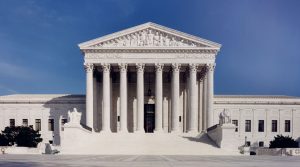 While the decision does not eliminate EPA’s authority to regulate greenhouse gas emission, it blocks broad rules that would compel utilities to close fossil-fuel plants and switch to renewable energy sources. This will greatly slow the just transition to a green economy and progress in fighting climate change. Clearwater decries this and all other attacks on the Clean Air Act , our health, and efforts to reduce carbon pollution from the nation’s biggest emitters.
While the decision does not eliminate EPA’s authority to regulate greenhouse gas emission, it blocks broad rules that would compel utilities to close fossil-fuel plants and switch to renewable energy sources. This will greatly slow the just transition to a green economy and progress in fighting climate change. Clearwater decries this and all other attacks on the Clean Air Act , our health, and efforts to reduce carbon pollution from the nation’s biggest emitters.